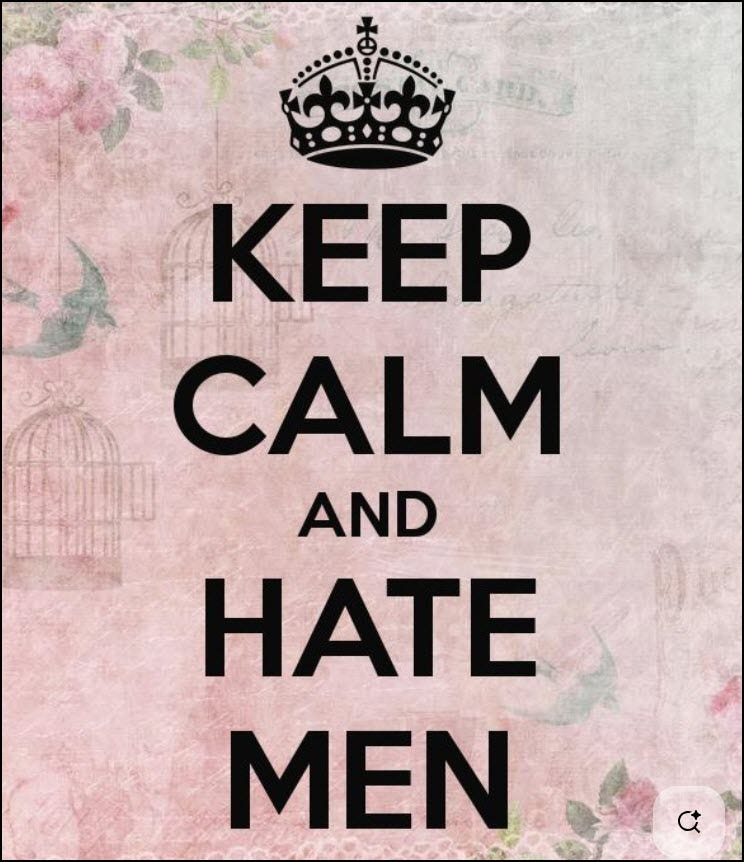A Letter to Work Advice Columnist Karla Miller About Young Women Finding Their Voice at Work
Ms. Miller should examine her one-sided view of gender in the workplace
Dear Ms. Miller,
I believe that you’re aware of my efforts to get the Washington Post to recognize its imbalanced coverage of gender, provable by its imbalanced coverage of domestic violence1 and by its 2018 publication of the repulsive Why can't we hate men? op‑ed.
You might recall that a few years ago I wrote to you in regard to two columns about a female lifeguard who claimed that she was paid less than male lifeguards.2 My column challenged your feminist-inspired, gender biased response to this young woman – that she was the victim of sex discrimination – and provided plenty of evidence that the so-called gender pay gap is a myth. (See my Substack section Pay Gap Myth for further proof.)
I respectfully ask that you take the time to read this new letter about your recent column, How to help young women find their voice at work and to thoughtfully consider why I believe that your response to the “senior female executive” who wrote you is gender biased.
Please don’t misunderstand. I’m not saying that men don’t sometimes behave poorly in the workplace or that they never are dismissive to women.
But your reply, which portrays women as constantly under siege in the workplace, is – to put it mildly – completely one sided. (“Take women, for instance. We’ve leaned in, girlbossed, played the game, reclaimed our time, swallowed “sorrys,” scrutinized our smiles, swapped our “shrillness” for vocal fry, womanned up and tried to just be one of the boys.”)
Has it ever occurred to you that men have been under a decades-long feminist-directed siege at work that is ever present but only rarely acknowledged?
It is the feminist pink elephant in the room.
I’m a retired information technology consultant who worked at numerous government agencies as well as in private industry for over four decades. During that time, I, along with other men I’ve worked with, have been insulted and demeaned by some women who, presuming that they’re constant victims of sex discrimination, have spewed the very worst anti-male disgust and hatred. Just a few of many examples from my career:
1. At a large federal IT project, the female government manager often directly insulted men on the team, e.g, “Whose stupid idea is this? Must have been a man!” Other women on the project followed this woman’s lead, often making snide, misandrist remarks. When I once objected to one woman’s persistent anti-male comments, she physically covered my mouth with her hand to prevent my protest. Can you imagine if I had done the same to her? How long do you think I would have remained on the project?
And lest you think that this misandry was just my imagination, one young woman who was on a team I managed told me how much she hated how many of the project’s women often and openly disparaged men. Her recommendation of a book that exposed feminism’s many flaws, Who Stole Feminism? opened my eyes and began a personal, 30 year exploration of the dark, hateful side of feminism.
2. At a large federal mortgage company, after attending multiple meetings where women would make derogatory comments about their male co-workers, I filed a sexual harassment complaint with HR. I found out later that HR concluded that “men couldn’t be victims of workplace harassment”, so they simply threw out my well-documented complaint, not even bothering to respond to me. Although I can’t prove it, I believe my complaint led to my being released from the project just a few weeks later.
3. At a project for a state government, I saw the following poster hanging in several women’s offices:
As a contractor, I felt that I had no recourse to object, so I bit my tongue. Can you image what would have happened if I had hung a poster about hating women in my cube?
Ms. Miller, although I’m sure that you’ll be unlikely to admit it, your letter shows that you have a feminist “sugar and spice” worldview where men are always bad, and women are always good, incapable of misbehaving.
You might want to consider the following items that illustrate how women are also very much capable of workplace meanness and misbehavior:
“However, I didn’t expect bullying to be so prevalent at the workplace. Adults are facing it pretty tough, with woman-on-woman harassment on the rise. … Women make much nastier office bullies than men [emphasis added], says psychologist Dr. Gary Namie, co-founder of the Institute.” – Why Women Are The Worst Kind of Bullies, Forbes, 2012
“Forget the stereotypes of sugar and spice. Girls are mean, and as this book and a recent New York Times Magazine cover story indicate, their subtle, insidious style of bullying is rapidly garnering attention and concern.” – from review of book Queen Bees & Wannabes
“According to [book author Rachel] Simmons, the same attributes that allow girls to be socially intelligent also allow them to be aggressive. ‘They are drawing from the same skill set,’ she says, adding, ‘Social intelligence is about being savvy enough to understand people and relationships. These are the same skills girls deploy when they launch lobbying campaigns to turn peers into a target, or to figure out just the right insult that will cut someone down.’ ”— When the ‘mean girl’ is a woman: How to deal with an adult bully, Washington Post, June 2021
“In 1986, four academic women, Mary Field Belenky, Blythe McVicker Clinchy, Nancy Rule Goldberger and Jill Mattuck Tarule, published a book called "Women's Ways of Knowing." A couple of years later, I went to work at a small business that would eventually become a worker-owned, feminist co-operative. When I finally left that company after seven years, I'd learned to curse Belenky et. al., along with a whole passel of other feminist theorists, whose ideas, I believe, helped to make my workplace the most poisonous and depleting I've ever encountered.” – Laura Miller, Women's Ways of Bullying: A survivor of a feminist co-operative tells all.
“… I also discovered that the supposedly egalitarian and sexually liberated all-lesbian community I lived in was in fact hierarchical and riddled with competition. Whether the issue was who was cleaning the kitchen or who was sleeping with whom, excluding males from the household did not vanquish rivalry and exploitation. My attempts to escape hierarchy had only ensnared me in new hierarchies, just less visible than the traditional kind.” – Mary Harrington, Reactionary Feminism
Sincerely,
Stephen Bond,
Publisher of "Letters to The Washington Post" Substack
This observation was confirmed by a February 2023 report by The Coalition to End Domestic Violence that described a 10-Year Suppression of the Truth on Domestic Violence by the Washington Post.
Your columns were “Female teen lifeguard questions why male teen guards are being paid more for the same job”, July 29, 2021 and “Female teen lifeguard protesting unequal pay finds support”, August 5, 2021




